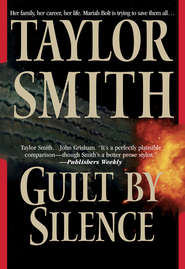По всем вопросам обращайтесь на: info@litportal.ru
(©) 2003-2024.
✖
Slim To None
Автор
Год написания книги
2018
Настройки чтения
Размер шрифта
Высота строк
Поля
The dark-eyed soldier-angel leaned close and whispered urgently in the old woman’s ear. “Shhh, grandmother! Don’t be afraid. Mumtaz has sent me.”
Mumtaz? Zaynab puzzled. But…how? She is far off in London.
It had been ten long years since Zaynab had last seen her daughter. Mumtaz’s husband had been a professor of mathematics at the University of Baghdad. Zamir was not a political creature, never had been. He might never have fled the country had Saddam not turned his murderous gaze in the direction of Iraq’s intellectuals. Mathematics, Zamir always said, did not concern itself with the shifting winds of human ambition, but with the unassailable logic of formulas that could be tested and proven. But then, as one after another of his colleagues fled or was imprisoned or killed for daring to express any opinion at all that distinguished him from a dumb rock, Zamir, too, found himself challenged. Perhaps he had some warning or premonition of danger. Whatever the case, Zamir defected while attending a mathematicians’ conference in Paris, taking Mumtaz with him.
When they didn’t return, Saddam’s soldiers came to Al Zawra, questioning Zaynab and her son for days about what they knew. In the end, the soldiers must have been convinced by their protestations of innocence, for they’d finally gone away and left the family alone. Mumtaz and Zamir had ended up in London, Zaynab had heard through intermediaries. Now, apparently, there were two young grandsons she had never laid eyes on. It broke her heart to think of them growing up among strangers, far from the land of their people, but at least they were safe there. Perhaps they were the lucky ones.
Was it possible Mumtaz had now sent a message through this dark-eyed warrior houri who spoke strangely accented Arabic?
As if reading her mind, the woman-in-man’s-clothing nodded. “Yes, Mumtaz, your daughter,” she murmured.
She was not an Iraqi, certainly, nor was her Arabic the Cairo dialect heard in movies and on imported television programs.
“Mumtaz heard about what happened to her brother,” the warrior-woman said. “To your son, Ahmed, and his wife, Fatima.”
Zaynab’s son and daughter-in-law had been killed two months ago in a shoot-out at their café near the central marketplace. A newly appointed official named by the American civil administrator had arrived from Baghdad and began taking afternoon coffee breaks at the café, talking to merchants and other local people, listening to their concerns about the uneasy security situation. He’d seemed like a good enough man, but Salahuddin, sensing a challenge to his authority, had issued a fatwa against what he called the “agent of the infidels.” In addition to the official and his bodyguard, Salahuddin’s men had gunned down six civilians in the café that day, including Zaynab’s son and daughter-in-law—Yasmin’s parents. Then, they had burned the café to the ground.
With her son dead, Zaynab had needed to find a way to support herself and Yasmin. Their family had once been prosperous, but it had fallen on hard times in recent years. During the time of international sanctions when goods grew increasingly scarce, they had sold off jewelry and anything else of value in order to purchase goods on the black market. By the time the café was destroyed, drying up even that modest source of income, there was nothing of value left to trade away and no one with money left to buy it in any case. In the end, Zaynab had taken to selling tea from a trolley in the marketplace.
And still, she worried. Hiding behind a scrim of false piety to justify his ambition, greed and brutality, Salahuddin had been issuing one restrictive command after another, and his bearded enforcers beat or arrested anyone who did not obey. If the rumors were true and he decided to forbid women to go out in public at all unless accompanied by a male relative, she and her poor granddaughter would starve to death. They no longer had any living male relative except her son-in-law in far-off London.
The old woman glanced over at the next bed. Yasmin was sitting up but she was restrained by a stocky, dark-haired soldier. The child’s eyes were huge and frightened. The soldier held her firmly but his expression seemed apologetic. Zaynab spotted two other burly, camouflage-clad soldiers in the room, guarding the door and peering around the edges of paisley window curtains that had grown tattered and thin. Their fingers were poised on the triggers of terrible-looking rifles. None of them looked like Iraqis. They were too well-fed.
How could they have entered so silently? Of course, Zaynab’s ears were getting old and feeble, but surely Yasmin would have heard something? Or the chickens they kept in the courtyard? How had these soldiers gotten by without the hens raising a squawk? Not to mention Salahuddin’s men, who were said to patrol the town all night long? Ostensibly there to guard against infidel invaders, as often as not Salahuddin’s men, most of whom were not even from Al Zawra, just strutted around, lording it over everyone, stealing whatever they pleased, and harassing farmers and shopkeepers who were up to nothing more nefarious than trying to provide for their families.
Even in the time of Saddam, may his name be cursed forever, the town had not lost so many innocents to senseless, ugly violence. These foreigners had good reason to be nervous, Zaynab thought. If Salahuddin’s men found them, they would be dead before sunup.
She studied the strange warrior-woman and her comrades, and they in turn studied her, all of them weighing their risks. Finally, Zaynab nodded. Only then did she realize that the warrior-woman had been holding her breath. She exhaled heavily now and released her grip on Zaynab’s shoulder, allowing her to sit up. The soldier holding Yasmin released her, too, and as soon as he did, the girl leapt across the space between the two beds. Grandmother and granddaughter wrapped themselves in each others’ arms, then looked back at the warrior-woman, who seemed to be the speaker for the others.
“My name is Hannah,” she said. She had a rifle slung over her chest, but she shrugged out of it, set it aside, then settled herself at the foot of Zaynab’s mattress. Her hair was very dark, most of it caught up in a plait except for wisps that clung to the damp skin of her forehead, cheeks and neck.
“Are you American soldiers?” Zaynab asked.
“My commander here is British,” the woman named Hannah said, nodding at the wiry man guarding the door. “The rest of us are American. We’re not soldiers, though.”
“You look like soldiers.”
“Think of us as protectors.”
“Protectors of whom?”
“At the moment, you and Yasmin.”
“I don’t understand. How can that be?”
“I told you, it was your daughter Mumtaz who asked that we come here.”
The warrior-woman unbuttoned a pocket on the leg of her pants and withdrew a folded piece of paper, then unclipped a small flashlight from her belt and turned it on. Like the men’s, it had a red shield around the lens, narrowing its beam. “This is from your daughter,” she said.
Being careful to keep the light aimed low and away from the window, she handed the paper to the old woman, holding the light on it. Zaynab took the paper.
“Is it really from Auntie Mumtaz?” Yasmin asked.
Hands trembling, Zaynab unfolded the note. She peered at the writing, and gasped. “Yes! I recognize her handwriting!”
“Shhh,” Hannah murmured, touching her arm. “Whisper. Tell your granddaughter what it says.”
Zaynab read:
Mama,
Please, you must do what these people say. They are friends and will keep you safe. Go with them. We have arranged visas for you and Yasmin to come and live in London with Zamir and me and the boys. Yasmin, you will go to school here and we will love you as our own daughter. Neither of you need ever be afraid again. It is for the best, I promise you. Come away from that terrible place.
We send you love and a thousand kisses.
Mumtaz
The old woman’s eyes misted as she clutched the note to her broken heart. Then, she looked up at the soldier-woman and nodded. “Tell us what we are to do.”
CHAPTER
7
Al Zawra: Compound of Sheikh Ali Mokhtar Salahuddin
The man known as George Kenner had gone by many names in his lifetime, taking on and casting off identities as easily as most people switched hats. At the moment, as far as the sheikh and his followers knew, Kenner was a Canadian-born ex-paratrooper-turned-private-military-contractor who had converted to Islam twenty years earlier while helping Afghan freedom fighters expel Russian invaders from their country.
It did no good for Kenner to try to pass as an Arab, not with his startling, pale blue eyes, fair skin and white-blond hair. Brown contact lenses and a dye job might have camouflaged his eye and hair color temporarily, but those solutions were unsuited to the kind of open-ended operation on which he was currently engaged.
In any case, the language would have given him away as soon as he opened his mouth. There were myriad accents and dialects throughout the Arabic-speaking world, but none of these came naturally to Kenner. As gifted a linguist as he was, having been trained from youth to blend like a native into certain foreign milieus, he would never speak better than kitchen Arabic. He’d come too recently to the language. Better to adopt the identity of a sympathetic former infidel from a country deemed relatively benign and then get on with the job of infiltrating Salahuddin’s inner circle.
Kenner had come to Salahuddin on the recommendation of a mujaheddin chief in Kabul, who’d praised his foreign-born brother for his piety, his ruthless devotion to the cause and his superior tactical skills. Inside the jihadist movement, the Kabul contact reported to Salahuddin, Kenner was called “Juma Kamal,” but his brethren accepted that his Muslim identity should remain secret to all but a select few. Kenner was of more use to them traveling incognito under his infidel name and that useful Canadian passport, which rarely received more than a cursory glance from border guards.
That Kenner’s Canadian background was fiction, his religious conversion a farce and his Kabul sponsor long since turned by U.S. intelligence remained a secret to all but a tiny handful of individuals back in the American capital. Washington had a miserable track record for running humint—human intelligence—sources, inside the nearly impenetrable fundamentalist Islamic warrior movement. The only reason Kenner’s cover had remained intact thus far was that the existence of the double agent was known to so few.
Here in the so-called Sunni Triangle, the self-styled Sheikh Salahuddin had seized on the opportunity offered by the current confusion to return to his hometown, wrest control of it and then extend that control over the region. If his campaign went as planned, he would be a major force to be reckoned with, playing a key role in the formation of the new national government.
Salahuddin claimed to hate the traitor Saddam Hussein, a fellow Sunni who paid lip service to Islam when it suited his aims but who, together with his corrupt sons, lived like the worst of infidels. If Salahuddin had once enjoyed a decadent life himself, his time in prison had allegedly convinced him there was more glory to be found in being a holy war leader. Now that Saddam had been overthrown, he had no wish to see the Americans’ tame Shia lapdogs take over the country, divvying it up between themselves and Kurdish riffraff. While a power vacuum existed, Salahuddin told his followers, the time was ripe to exert the moral authority of the Prophet’s true way—and there was no shortage of potential followers among the country’s Sunni minority, which was terrified at the prospect of rule by Shias and Kurds, gunning for bear after Saddam’s long, dark reign.
Kenner had been infiltrated into Salahuddin’s camp ostensibly to help organize and train the sheikh’s warriors, but really to keep track of his plans and try to turn them in a direction favorable to Washington’s interests in the oil-rich region. Either that, or, if Salahuddin couldn’t be co-opted, eliminate the threat. If the sheikh had known where the mercenary’s true loyalties lay, he would have been far more careful about welcoming him into his proverbial tent.
Sitting on the edge of his cot, Kenner frowned at the sound of dead air in his cell phone. His caller had hung up on him. Typical.
He’d known Dick Stern over a decade now, since long before the ex-CIA deputy had arrived at his current exalted status in the White House inner sanctum as assistant national security advisor. He’d met Stern back in the days when he was running covert operations into Soviet-controlled Afghanistan. Since then, Kenner had carried out several deniable assignments at the CIA operative’s behest, including at least one assassination of a foreign opposition leader—a totally illegal operation that remained to this day unknown to anyone else in the American capital, least of all the dreaded Congressional intelligence oversight committees.
As far as Kenner was concerned, Stern had always been prone to pomposity—seldom in doubt, never wrong. He demanded absolute, unquestioning obedience from his agents and he got it, because to cross him was suicide, professionally and sometimes literally. On the other hand, the man did have a talent for landing on the winning side of domestic bureaucratic skirmishes, which made him a reliable source of lucrative contract dollars to a free agent like Kenner.
Kenner had been asleep when Stern called from Washington. His room in the sheikh’s compound was a private one, closet-sized but infinitely preferable to the overcrowded barracks that the bulk of Salahuddin’s fighters occupied. When his razor-thin cell phone had vibrated in an inner pocket of his shirt, he’d come instantly awake. Salahuddin was paranoid about cell phones, forbidding their use in the compound for fear of overhead satellites that fished through the ether, listening for suspect conversations and using the signal to zero in on enemy targets. Kenner was careful to keep his link to his handlers well hidden from view at all times, and was trusted enough at this point never to be subjected to a body search.











